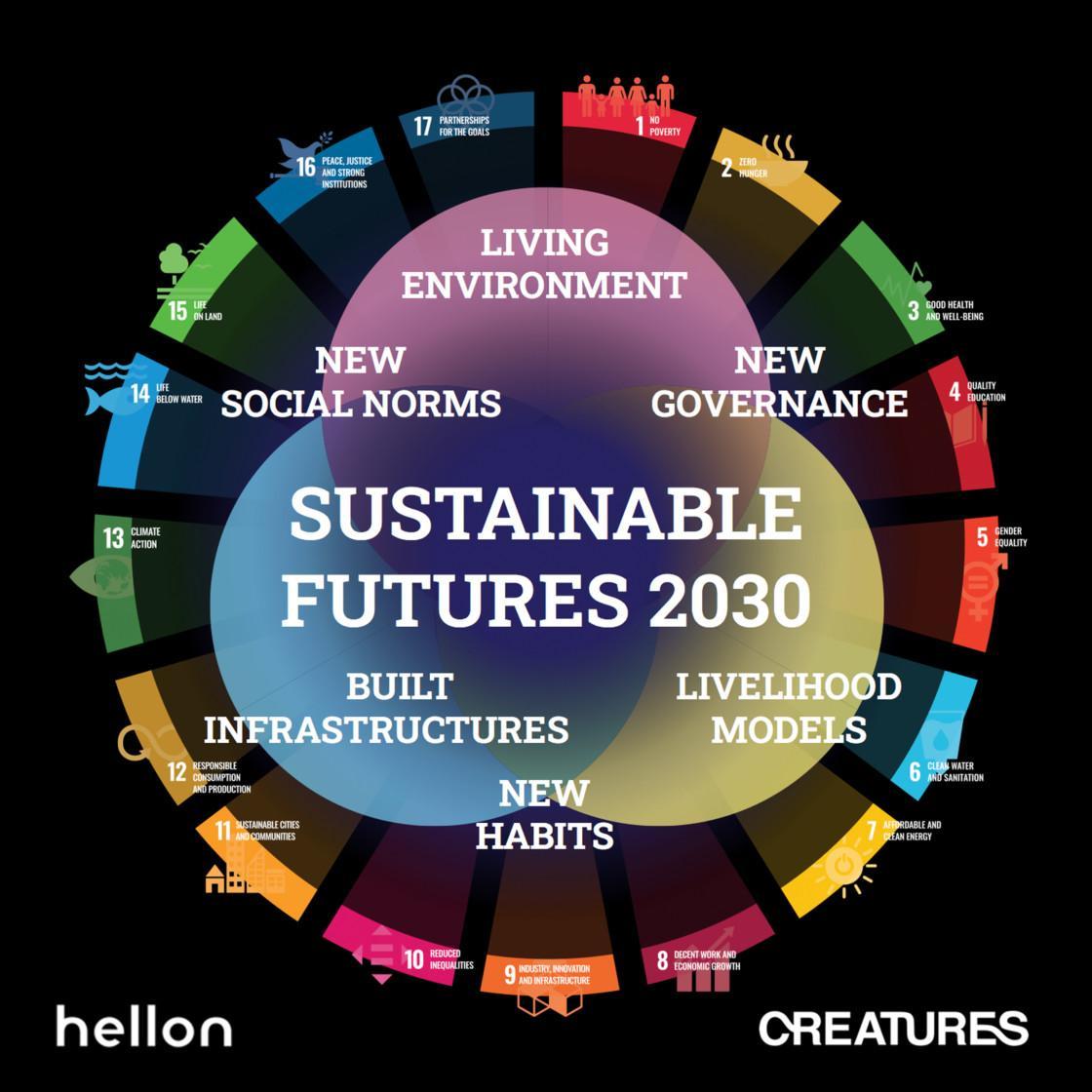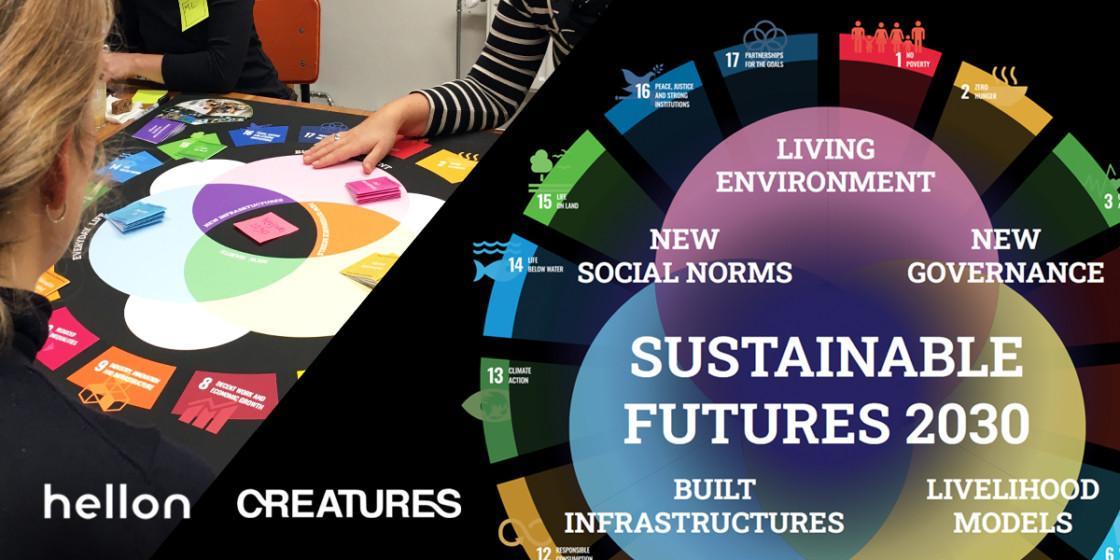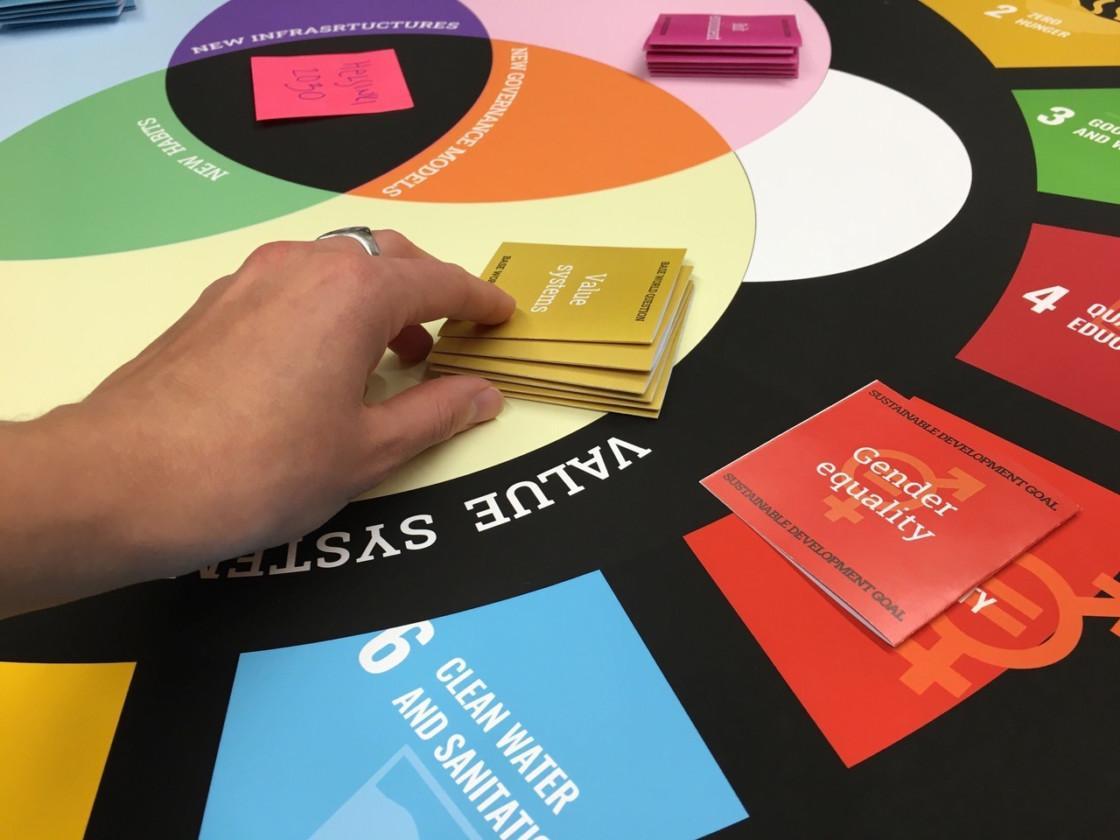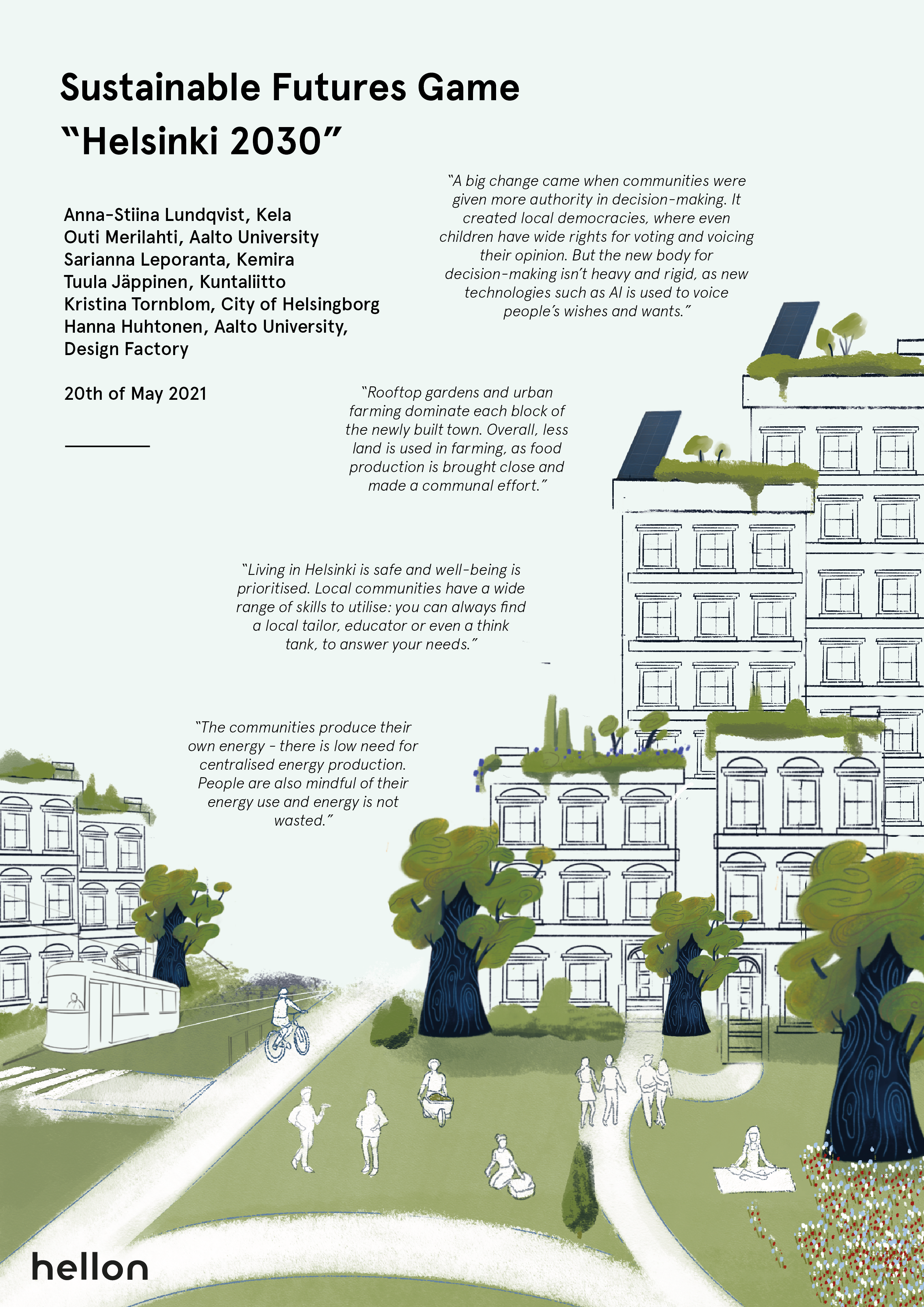Accelerating sustainability transitions requires creativity and imagination to concretise desirable futures narratives. For this purpose, Hellon designed the Sustainable Futures Game that connects sustainability goals and everyday business contexts to help build organisations’ capacities for imagining alternative futures. The game can be played as physical or online version and is designed for people with leadership and sustainability-related roles within organisations, offering a creative approach to address their sustainability challenges.
The purpose of the game is to help players co-envision a desirable future state in 2030 and then backcast to find out pathways on how different UN SDGs have been achieved. The game is designed to be free from a specific context: it has a holistic societal outlook and allows players from diverse backgrounds to co-create desirable future scenarios and take away from that what matters in the context of their organization’s ambitions and values. Even though it includes educational elements, its main purpose is inspirational and provides ‘food for thought’ for participants’ work practices. Hence, outcomes of each gameplay vary between participants, depending on what they find interesting and relevant. This diversity of perspectives is aimed to increase out-of-box thinking, find opportunities, and create different pathways for reaching the SDGs.
The Sustainability Futures Game has been designed as a continuation of the Nordic Urban Mobility 2050 Futures Game game, which was created by Hellon for Nordic Innovation Nordic Smart Mobility and Connectivity programme in 2019.
In practice, the game can be played as a half-day session, or as a one-week sprint with much more in-depth analyses and documented outcomes. A game session starts with an introductory presentation by the facilitators to prepare the players for the right mindset and introduce the key terms and concepts of the game. In the first part, the players collectively write a fictional story, which depicts a desirable near-future state of 2030 for a selected city. The fictional story evolves through several collective tasks including, for instance, visual probes, probing questions, and questions related to the UN Sustainable Development goals. The main objective of this part is to facilitate a dialog on desirable futures and collectively imagine a fictional story that integrates multifaceted characteristics of this future narrative, such as personal desires, societal norms, or political structures.
The game can be seen as an example of a futures-oriented design game that helps participants make the abstract and ambiguous topic more engaging and personal by incorporating elements from design, games, and fictional storytelling. The game session combines varying methods from arts and design, such as improvisation, fictional storytelling, visual prompts, and creative ideation.
During Autumn 2020, Hellon organised online and physical game sessions with different service designers, researchers, sustainability experts, and system designers which resulted in continuous iteration and redesign of the original version of the game. The final design has been tested in November 2020, with sustainability professionals from the FIBS Corporate Responsibility Network – Finland’s leading enterprise network to promote financially, socially and ecologically sustainable business.
During the first quarter of 2021, Hellon met 15 public and private organisations in Finland, to present the Game and gather feedback. The game was further presented at Hellon’s online webinar and followed by a game session “Helsinki 2030” with selected webinar participants representing different public organizations. In autumn 2021, Hellon organized one more game session for adult students at the Laurea University of Applied Sciences.




